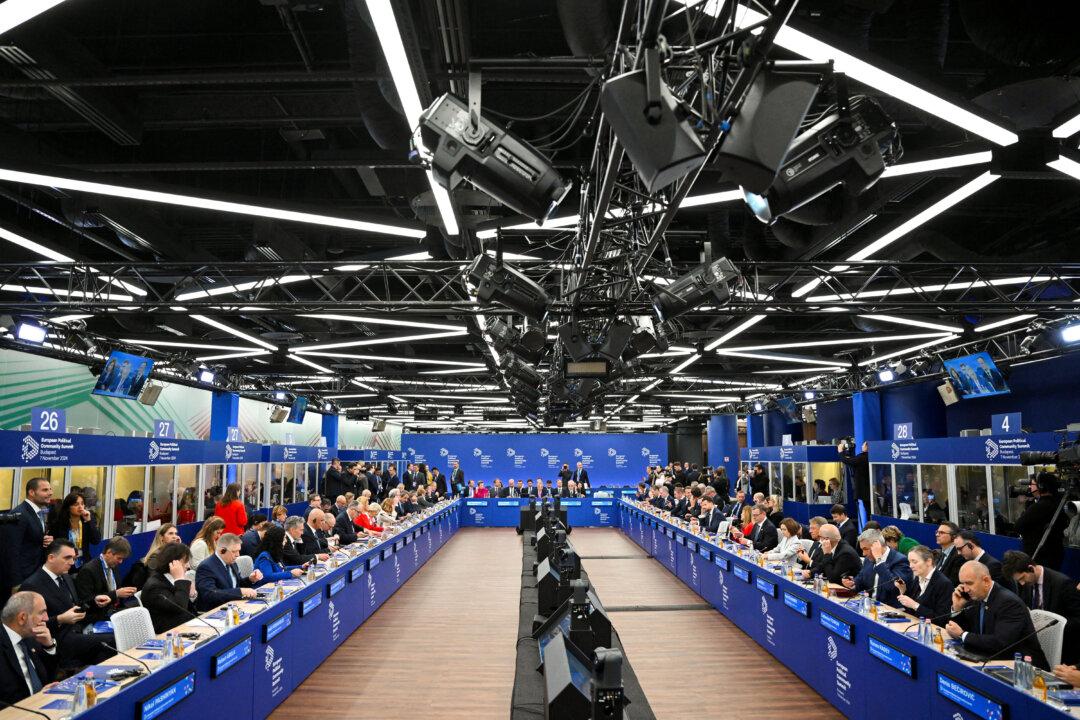European leaders meeting in Budapest, Hungary, have urged President-elect Donald Trump to continue U.S. support for Ukraine and avoid trade wars.
The summit on Nov. 7 is a meeting of the wider European Political Community, which includes non-EU states such as the UK and Switzerland. It will feature a discussion that the European Commission said is designed to renew the broader continent’s support for Ukraine.





